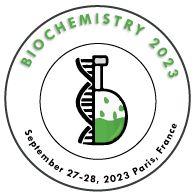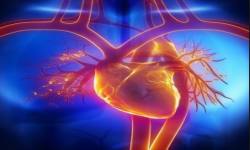Cardiac Biochemistry
Cardiac Biochemistry is the biochemical mechanisms and properties underlying normal cardiovascular function and diseases such as heart failure. The molecular properties and regulatory mechanisms controlling the function of G protein-coupled receptors. The adrenergic receptors for adrenaline and related molecules are used as model systems. The cardiovascular system and the biochemistry of grafts used in heart surgery.
- Biochemistry of cardiovascular system
- Biochemistry of cardiac muscle and lung
- Biochemistry and physiology of cardiac muscle
Related Conference of Cardiac Biochemistry
Cardiac Biochemistry Conference Speakers
Recommended Sessions
- Animal and Plant Biochemistry
- Cardiac Biochemistry
- Cellular and Molecular Biology
- Clinical and Nutritional Biochemistry
- Clinical Pathology
- Computational Chemistry and Chemical Biology
- Enzymology & Biochemistry
- Enzymology in Molecular Biology
- Lipids and Metabolism
- Medical Genetics
- Medicinal and Pharmaceutical Biochemistry
- Nano Biochemistry
- Protein and Analytical Biochemistry
- Proteomics in Biochemistry and Molecular Biology
- Structural and Molecular Biochemistry
- Structural Bioinformatics and Structural Molecular Biology
- Structural Biology
- Toxicology and Pharmacology
Related Journals
Are you interested in
- 3D Structure Determination - Structural Biology-2026 (France)
- Advanced Techniques in Structural Biology - Structural Biology-2026 (France)
- AI & Computational Structural Biology - Structural Biology-2026 (France)
- Biochemistry and Biophysics - Structural Biology-2026 (France)
- Computational Approach in Structural Biology - Structural Biology-2026 (France)
- Drug Designing and Biomarkers - Structural Biology-2026 (France)
- Hybrid Approaches for Structure Prediction - Structural Biology-2026 (France)
- Membrane Proteins and Receptors - Structural Biology-2026 (France)
- Molecular Modelling and Dynamics - Structural Biology-2026 (France)
- Proteomics and Genomics - Structural Biology-2026 (France)
- Structural Bioinformatics and Computational Biology - Structural Biology-2026 (France)
- Structural Biology in Cancer Research - Structural Biology-2026 (France)
- Structural Virology - Structural Biology-2026 (France)
- Structural Virology and Infectious Diseases - Structural Biology-2026 (France)
- Structure-Based Drug Discovery - Structural Biology-2026 (France)
- Structure-Based Solutions to Global Health Challenges - Structural Biology-2026 (France)
- Structure-Function Relationships - Structural Biology-2026 (France)
- The Structural Basis of Disease - Structural Biology-2026 (France)


